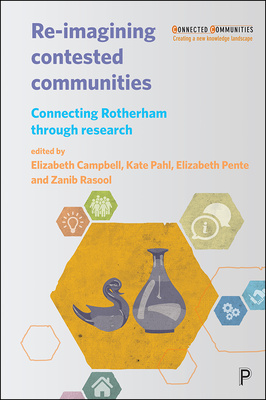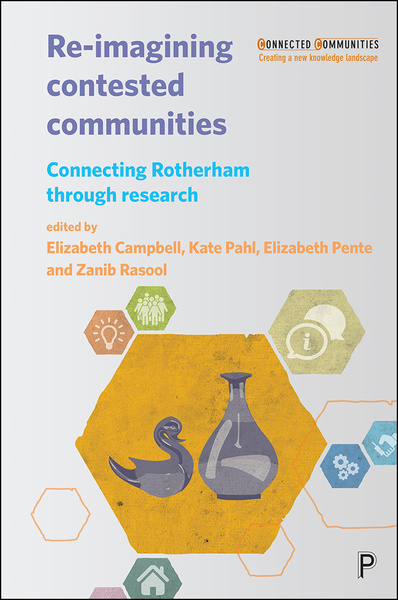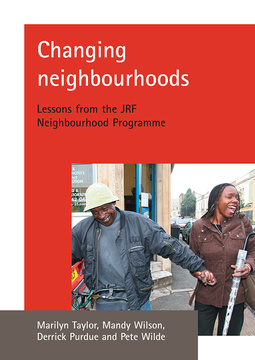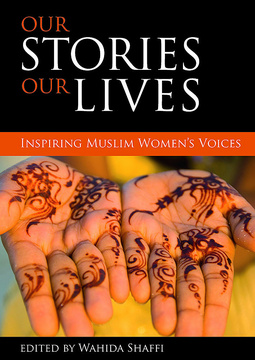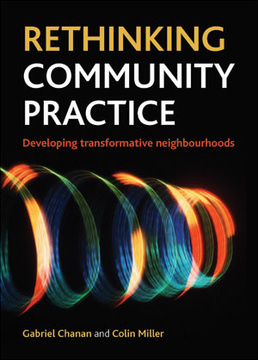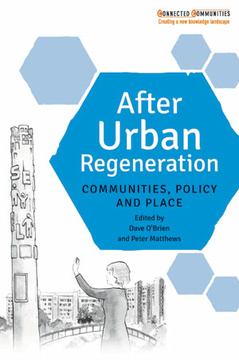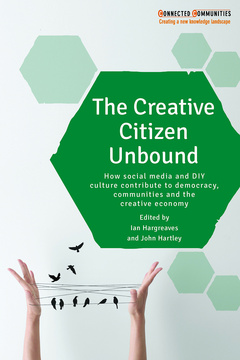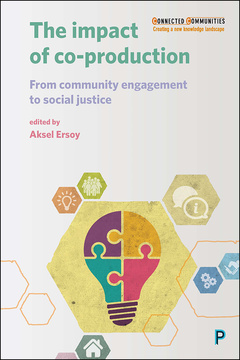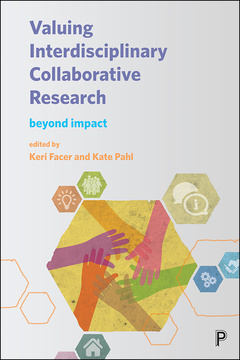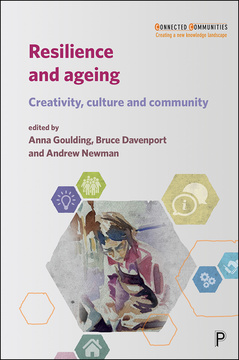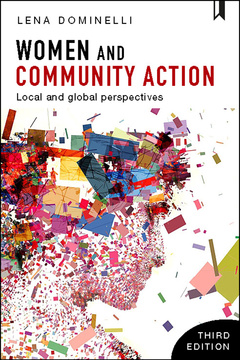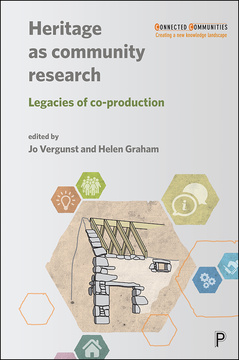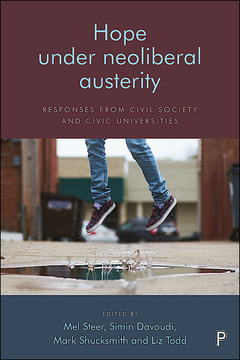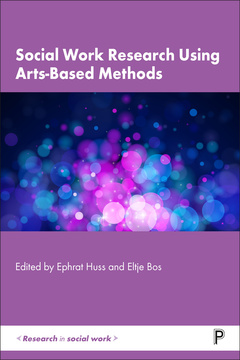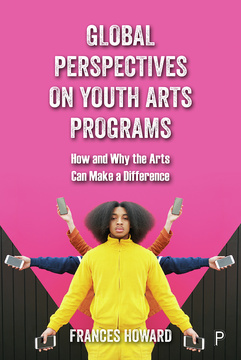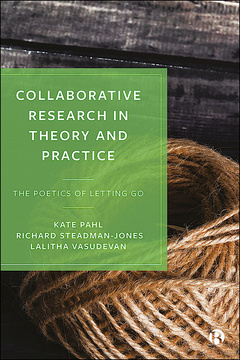Re-imagining Contested Communities
Connecting Rotherham through Research
Edited by Elizabeth Campbell, Kate Pahl, Elizabeth Pente and Zanib Rasool
ISBN
978-1447333326Dimensions
234 x 156 mmImprint
Policy PressISBN
978-1447333302Dimensions
234 x 156 mmImprint
Policy PressISBN
978-1447333333Imprint
Policy PressISBN
978-1447333340Imprint
Policy PressThis is a book that challenges contemporary images of ‘place’. Too often we are told about ‘deprived neighbourhoods’ but rarely do the people who live in those communities get to shape the agenda and describe, from their perspective, what is important to them. In this unique book the process of re-imagining comes to the fore in a fresh and contemporary look at one UK town, Rotherham.
Using history, artistic practice, writing, poetry, autobiography and collaborative ethnography, this book literally and figuratively re-imagines a place. It is a manifesto for alternative visions of community, located in histories and cultural reference points that often remain unheard within the mainstream media. As such, the book presents a ‘how to’ for researchers interested in community collaborative research and accessing alternative ways of knowing and voices in marginalised communities.
"These community stories and voices highlight the power of storytelling and narrative as a research methodology and method. This book will be of great interest, I believe, to academics, community practitioners and organizers, social justice advocates, policy makers, students at all levels, artists, humanists, and others." Theodore Alter, Co-Director of the Centre for Economic and Community Development, The Pennsylvania State University
Kate Pahl is Professor of Literacies in Education at the University of Sheffield, with an interest in artistic methodologies and co-produced literacy research with communities.
Elizabeth Pente is a doctoral student at the University of Huddersfield whose research is concerned with public history and post-Second World War urban decline and regeneration in the UK.
Zanib Rasool, MBE has worked 30 years in the community and is currently employed as Partnership and Development Manager for the charity Rotherham United Community Sports Trust.
Elizabeth Campbell, co-author of Doing Ethnography Today and The Other Side of Middletown, is Associate Professor of Education at Marshall University, US
Part One: Introductions;
What kind of book is this? ~ Elizabeth Campbell;
Policy, practice and racism: social cohesion in action ~ Zanib Rasool;
Part Two: Community histories;
Introducing Rotherham ~ Kate Pahl and Miles Crompton;
How can historical knowledge help us to make sense of communities like Rotherham? ~ Elizabeth Pente and Paul Ward;
Some poems, a song and a prose piece ~ Ray Hearne and Ryan Bramley;
Who are we now? Local history, industrial decline and ethnic diversity ~ Elizabeth Pente and Paul Ward;
Silk and steel ~ Shahin Shah;
History and co-production in the home: documents, artefacts and migrant identities in Rotherham ~ William Gould and Mariam Shah;
Tassibee: a case study ~ Khalida Luqman;
Identity ~ Zanib Rasool;
Part Three: Community ways of knowing;
Methodology: an introduction ~ Elizabeth Campbell;
Collaborative ethnography in context ~ Elizabeth Campbell, Luke Eric Lassiter and Kate Pahl;
Safe spaces and community activism ~ Zanib Rasool;
Emotions in community research ~ Zanib Rasool;
What parents know: a call for realistic accounts of parenting young children ~ Tanya Evans, Abigail Hackett, Joanna Magagula and Steve Pool;
Where I come from and where I’m going to: exploring identity, hopes and futures with Roma girls in Rotherham ~ Deborah Bullivant;
Introduction to artistic methods for understanding contested communities ~ Kate Pahl and Steve Pool with Marcus Hurcombe;
What can art do? Artistic approaches to community experiences ~ Zahir Rafiq in conversation with Kate Pahl and Steve Pool;
Using poetry to engage the voices of women and girls in research ~ Zanib Rasool;
The Tassibee ‘Skin and Spirit’ project ~ Cassie Limb;
‘The Rotherham project’: young men represent themselves and their town ~ Nathan Gibson with Zanib Rasool and Kate Pahl;
Part Four: Communities going forward;
Re-imagining contested communities: implications for policy research ~ Robert Rutherfoord and Maria O’Beirne;
What this book can teach us ~ Elizabeth Campbell, Kate Pahl, Elizabeth Pente and Zanib Rasool.







